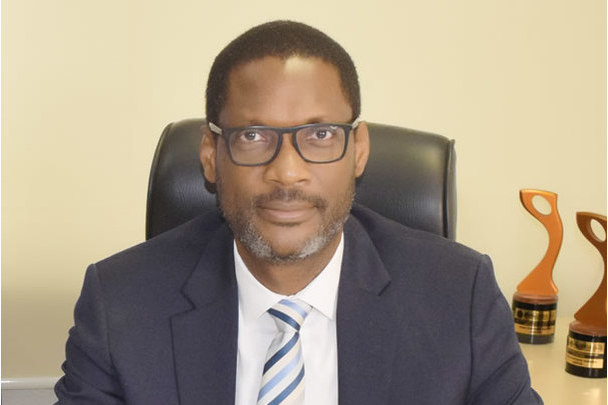How Nigeria can leverage intra-Africa trade

Summary
Nigeria should broaden its expertise from services to production and manufacturing, says Ope Babalola, MD/CEO, Webb Fontaine Nigeria.
In this exclusive interview, Ope Babalola, Managing Director of Webb Fontaine Nigeria Limited, discusses the activities of the Trade Facilitation solutions provider in Nigeria and its outlook for the Nigerian economy, especially now that the African Continental Free Trade Area (AfCFTA) is in operation. He was interviewed by Jide Akintunde, Managing Editor of Financial Nigeria.
Jide Akintunde (JA): What are the core activities of Webb Fontaine Nigeria Limited?
Ope Babalola (OB): Webb Fontaine Ltd is an Information Technology (IT) company that provides Trade Facilitation solutions for governments across the world. We provide Single Window platforms for trade, paperless customs, cargo tracking, port solutions, payment platforms, and other trade-related services. We also advise governments on strategic and institutional reforms.
In Nigeria, our core business is to support the Federal Government and the Nigeria Customs Service (NCS) in their automation of Customs administration. This means we provide the hardware and software platforms for Trade Facilitation and anything else that helps the government to achieve its aims and objectives.
JA: What key value has Webb Fontaine Nigeria recently delivered in Nigeria’s policy and business environment?
OB: The Nigeria Customs Service has been able to automate many of its processes that were done manually for a long time. For instance, importing agents can now go to the portal for trade actors to process all the required documentation, from e-Form M – the Central Bank of Nigeria (CBN) and NCS’ online mandatory documentation process – to the Pre-Arrival Assessment Report (PAAR) system of the NCS, and finally clearing their consignments.
Along the way the agents can get their Standards Organisation of Nigeria (SON) and National Agency for Food and Drug Administration and Control (NAFDAC) certificates, which are now digitally available and can instantaneously be transmitted electronically. As a result, processes that took days and several steps of moving paper files around now take minutes.
This has improved the transparency of NCS operations and improved revenues by blocking leakages and speeding up clearing time. The Comptroller-General of the NCS and his many fine and experienced officers have really made the project an undisputed success.
JA: What is your view on the prospects of the country to improve economic and business performances through the African Continental Free Trade Area (AfCFTA) now in operation?
OB: Nigeria is already a leader in the availability of expertise and services across the African continent. Our banks and financial services are continental leaders, just like many of our professionals. The areas we will have to be careful in are manufacturing and production of goods. We are not always competitive in these areas due to our poor infrastructure.
But anyone paying attention can see the improved infrastructure in roads and transportation, as well as the rosy prospects for our power sector. We are moving in the right direction and as we continue doing that, we will see the benefits. Intra-Africa trade is barely over 15 per cent of the continent’s total trade. Nigeria has a huge opportunity ahead.
We also need to make sure visitors can come in easily, do their business unhindered, enjoy our wonderful Nigerian culture and hospitality, and leave safely, having achieved what they came to do. Our goal must be to be the driver of the new economic order and not just to be a market for goods from other countries.
JA: What is your outlook for the Nigerian economy, especially the logistics system that was badly disrupted by Covid-19 last year?
OB: What we saw with the impact of the Covid-19 restrictions was that we have to adapt quickly in the future economy that is already upon us. Only institutions with robust systems or those that could quickly make adjustments thrived. NCS made record revenues last year because it had already established an online presence and its platforms were operating.
What we need to look at now is how to improve this and extend it to other sectors of the economy that are not yet strong in automation. We should encourage such players to switch to the available tools to ensure they don’t get left behind and our economic operators are not analog players in a world that is fast digitalizing. We need to future-proof all sectors of our economy. Technology will be a big part of that, and nobody can afford to be left out.
Recent Interviews
Latest Blogs
- Driving economic growth through green transition in Nigeria
- CBN is fighting inflation instead of stagflation
- Why electricity privatization failed (2)
- How net metering can boost embedded power generation
- Adaora Umeoji and gender in Nigerian banking leadership
Latest News
- CBN increases capital requirements of banks, gives 24 months for compliance
- IFC, partners back Indorama in Nigeria with $1.25 billion for ...
- Univercells signs MoU with FG on biopharmaceutical development in Nigeria
- CBN settles backlog of foreign exchange obligations
- Ali Pate to deliver keynote speech at NDFF 2024 Conference











